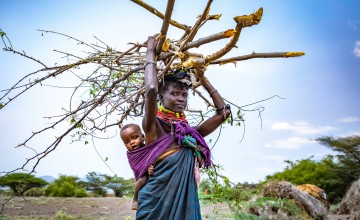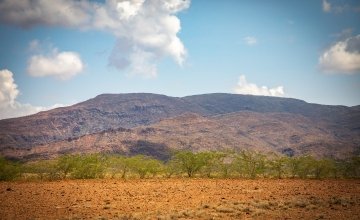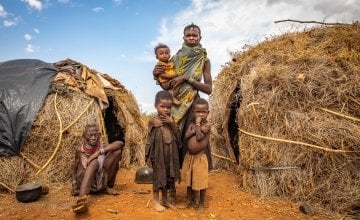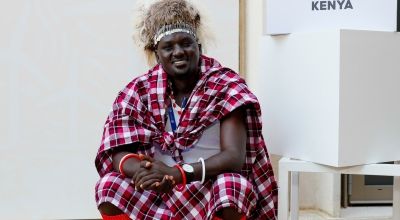
Knowledge Hub
Turkana: A documentary podcast from Concern

Travelling to a remote part of northern Kenya, this special one-off episode features the incredible stories of three remarkable women confronted by the impossible realities of climate change. You can listen and download from our dedicated podcast page, in iTunes, Spotify, and Stitcher or below via Soundcloud.
One of the greatest injustices of climate change is that the people who are least responsible for causing it are the people who are paying the heaviest price for it. It’s an injustice that was plain to see when I travelled recently to Turkana county in northern Kenya.
Turkana overview
It’s a county that has been overlooked in the past in terms of investment and development, with the country’s limited resources channelled into areas with high agricultural production. Turkana is not one of those areas. The dry, clay-like soil is not very conducive to growing things. So most people make a living here by herding goats and other animals, following the pastures wherever they grow. Under any conditions, it’s a difficult life. But with recent changes in climate conditions, it has become close to impossible.

I travelled to Lokitaung specifically, in the northern part of the county, about a five-hour drive from the county capital Lodwar. It’s a long and bumpy drive. For a small part of it, you can just about make out Lake Turkana is the distance, which is the world’s largest desert lake. Other than that, it’s a repetitive landscape.
The land here is semi-arid, so it’s not quite the dry dusty desert that can be found on the other side of the lake. It’s described instead as a scrubland. There are patches of green but they are usually trees or small thorny shrubs. Grass grows here too, during the rainy seasons. But it was in short supply when I arrived. The rains had failed for two consecutive rainy seasons, plunging the region into drought.
Roughly 800,000 people in Turkana are affected by this drought. That’s roughly two-thirds of the county’s population. Of those, about 240,000 are in critical need of assistance. I was there to speak to people who were feeling the worst effects.
Three remarkable women
I was privileged to meet and spend time with three women who were kind enough to invite me into their homes and open up about their lives. Three remarkable women – Ng’ikario Ekiru, Asekon Lopua, and Attir Kataboi.
They are the female faces of climate change. All three are battling the effects of repeated droughts. ‘Turkana’ tells their stories and of the uphill struggles they face and the extraordinary lengths they are going to, just to keep their children alive.

Credits
This documentary is a Concern Worldwide production. It was produced and presented by Clare Ahern with Sound Supervision from Julien Clancy.
Music by Podginton Bear
Tracks: Sensitive, In my Head, Memory Wind, Magpie, Many Hands
Additional Sound Recordings from Freesound






